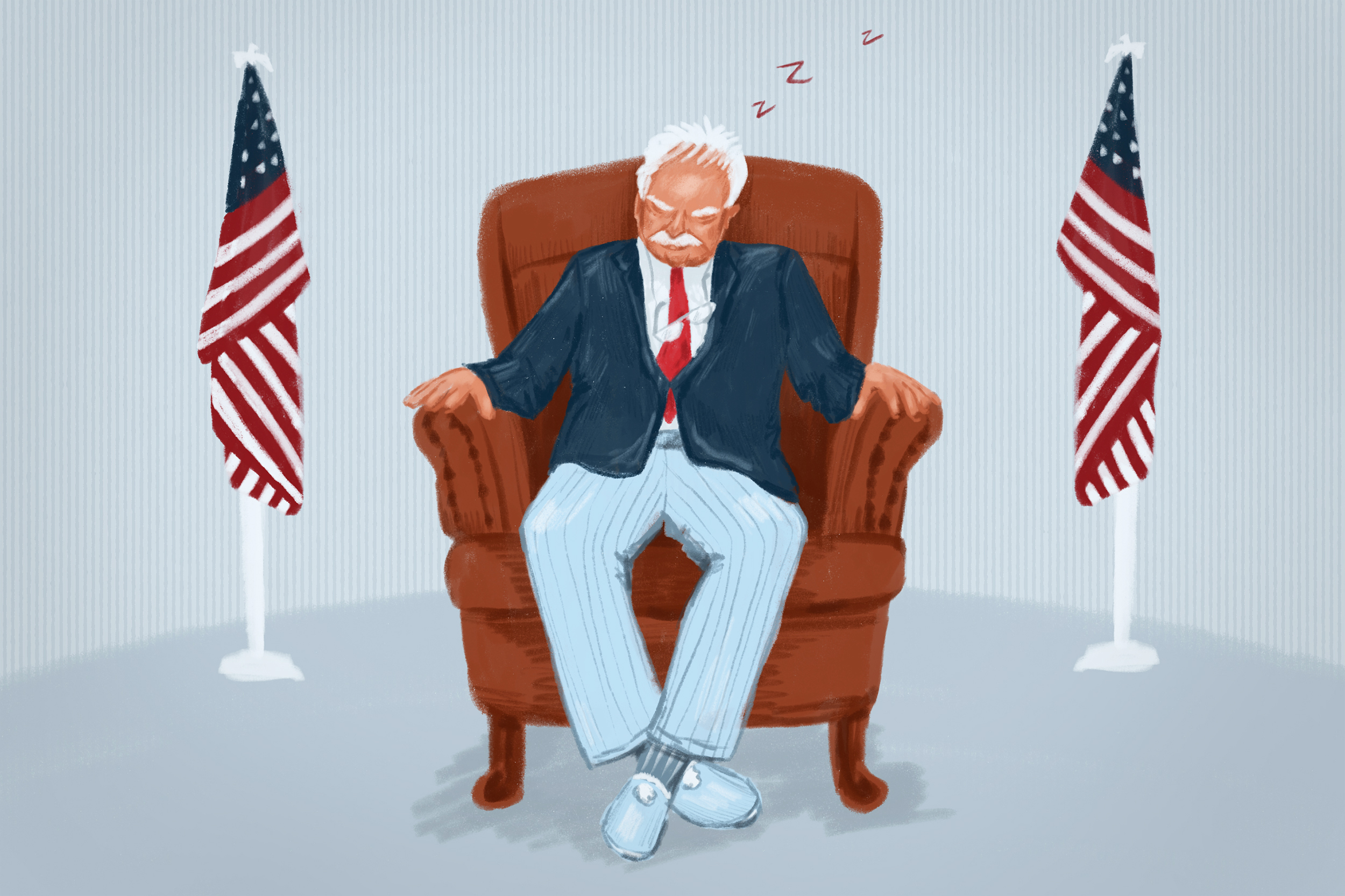“With age comes wisdom,” Oscar Wilde famously wrote. In this singular and simplistic line that has become near universal gospel, Wilde cemented the notion that the number of revolutions around the sun must equivocate to right and just judgment. Such has been the consensus for much of the modern age, yet growing concerns from younger generations are beginning to challenge this line of thought. There is one place in particular in which this can be most poignantly seen. Politics.
It is no secret that our political stage is rife with geriatric members of our society, guiding the country with all of their hard-won wisdom. The current congressional makeup finds itself no different, with the median age in the House being 58, and the Senate being a little over 65. The growing discontent from many voters has been on the rise due to these high ages, and the feelings towards leaders that may be mentally unfit for the job and severely out of touch.
A recent survey from the Pew Research Center found that only 3% of Americans believe that the best age for a president to run is in their 70s or older, while most Americans favor a maximum age term limit. Despite this consensus, the current likely choices for the 2024 presidential ticket happen to be well within that margin. The study found that roughly half of Americans believe that the best age for a president should be in their 50s, with only 25% saying the best age is in their 60s.
The incumbent standing president Joe Biden is currently 81 years old, while the most likely challenger, former president Donald J. Trump, happens to be 77. It is in this discrepancy that we find the issue, which is simply that many Americans are unhappy with the rising ages of governmental officials.
While this is a complex issue, one obvious problem that is being constantly posed has to deal with the mental fitness of our American leaders. Most cognitive decline occurs after the age of 65 and is particularly potent in one’s 70s and 80s, with nearly one in nine people aged 65 or older being diagnosed with Alzheimer’s disease. As seen especially in the 2020 and 2024 election cycle, age is a vital concern for many Americans. How can we expect our leaders to deal with the tricky and burdensome tasks that face them when they are not their most mentally apt? This of course is not to mention the many physical ailments that affect older populations, often not allowing them to fulfill the most basic tasks. A study published by the National Institutes of Health found that “approximately 82% of older adults have at least one chronic disease that requires ongoing care and management, with hypertension, arthritis, and heart disease being the most common.”
It does not require much further data to conclude what many Americans are already finding, which is that our leaders are simply too old to effectively lead.
The issue here not only lies in the growing cognitive and physical difficulties as a member of government ages, but also in the possibility of being out of touch with current issues. With the median age of congressional members in the Senate being roughly 65 years of age, this puts most of their life experiences before many of the complex issues we now face. These leaders who have spent more time living in a world in which the internet did not exist now face the growing challenges of artificial intelligence. Similarly, many of them have never dealt with the increasing climate issues that plague us, and yet are still at the helm of the ship steering us in an outdated direction. While the wisdom learned from acquiring their many years of experience is not to be discounted, it is still worth noting that many of these leaders do not have the current urgency required to tackle these issues effectively. This of course is not to mention that most government leaders will most likely not have to deal with the consequences of their decisions. While it is a harsh reality, a side effect of having a primarily geriatric government is that there is a lack of accountability for these leaders, as the average life expectancy for Americans is around 81, which many of them are close to reaching. How then is there supposed to be a responsibility, a sense of necessity, when many of these governmental agents are not going to be alive to see the fullness of their decisions?
This brings us to a few of the solutions currently being hashed over in various government and social circles. The most prominent of these is age limits. While not a new idea, the US currently does not have an upwards age limit and would require a constitutional amendment to acquire. With this, there have been several discourses over the notion that such a move could be considered “ageist” and infringe on the rights of these individuals. Regardless of these issues, a survey from Pew Research has uncovered that 79% of Americans support the idea of an age limit for office. Yet there is another less divisive solution at hand, which could potentially fix the crisis and avoid ageism disputes. This solution is term limits.
Term limits are in place for presidential elections, and many other countries have them for their respective congress. Though in the United States there is no limit on the number of years one can spend in the House, Senate, or court appointments. Despite this, nearly 87% of Americans are in favor of term limits in Congress, with 56% of them being strongly in favor. And it is not difficult to see why. Without term limits, many government officials have decided to make a career out of being a politician, which is a conflict of interest. When officials are more focused on maintaining their livelihood and the power they have grown to love, what good does change do in their world? While it may be easy to dismiss this point by remembering that we can simply vote these leaders out, it is important to realize this often does not happen. For a myriad of reasons, whether it be the incumbency advantage or the illegal yet rampant use of gerrymandering, oftentimes voters choose not to vote out these long-standing political officials despite overwhelming negative sentiment. This typically leads to ineffective leaders staying in positions of power, taking up these spots that should be given to those who can do these jobs more effectively. Term limits can solve these issues by capping the number of years one can be in office, allowing a filtration system for older or ineffective members. In the end, this will provide less incentive to worry about keeping their place in office. In addition to this, it could introduce younger members who have more stake in the problems at hand.
This issue is one that is both incredibly sensitive, and even more complex to solve. There will be no clear cut nor immediate solution, and any change that is made will likely take many years of legislation. This is a problem that is not going to go away anytime soon and is actually intensifying as the years pass. While it may seem hopeless, it is important to recognize who has the power. We have the ability to be proponents for these causes, whether it be through direct running in these elections or the simple yet powerful act of voting; we the people have the ability to call on our leaders to fix these issues. With the upcoming 2024 election, there has never been a greater time to make change. Let us hope that this year’s change will begin, and that we may look forward to a more capable tomorrow.

















